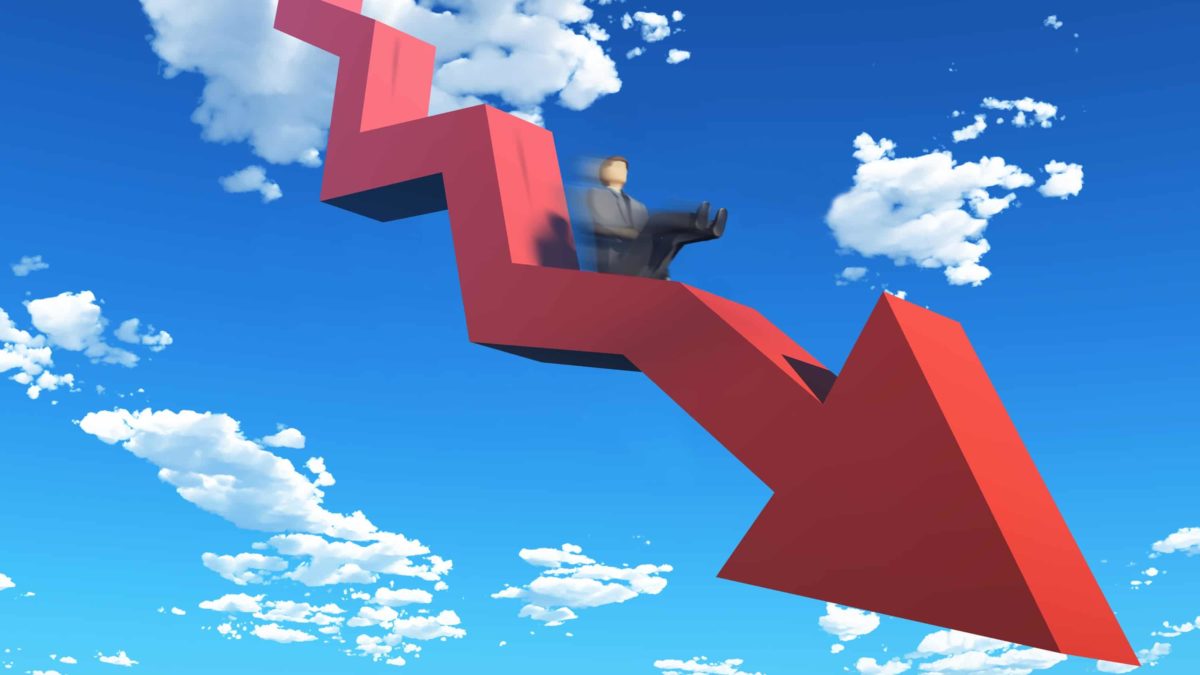Last week, I wrote about the volatility that has hit the ASX over the past few months (and the past few days). On the surface, that sounds strange, given the ASX hit an all-time closing high just last Tuesday.
But, like the proverbial duck sitting serenely on the surface of the water, but paddling madly underneath, the headlines and totals hide quite a lot of activity.
Banks and miners have been on the rise, while 'growth' companies have taken a hit. Some are down a little. Others are down a lot.
And it's important to remember such moves, while unwelcome, are far more common than most people realise.
Doesn't necessarily make them any more fun, though. Judging by the feedback I received in response to what I wrote, it sounds like my article struck a chord.
"I needed to read that" was typical of the responses.
It's easy to feel confident when things are going well. Less so when share prices are falling.
Doubt creeps in.
Uncertainty.
Fear.
The pain of loss.
Life wasn't meant to be easy, apparently. And neither is investing, unfortunately.
I feel your pain.
But today I wanted to try to take you one step further.
See, if you're going to be buying shares – directly, indirectly via a dividend reinvestment plan perhaps, or automatically via Super, it might just pay to cast this volatility in a different light.
And I'm going to go to the Oracle, himself, Warren Buffett, to help me make the case.
Tell 'em what you said, Warren:
"The logic is simple: If you are going to be a net buyer of stocks in the future, either directly with your own money or indirectly (through your ownership of a company that is repurchasing shares), you are hurt when stocks rise."
"You benefit when stocks swoon."
"Emotions, however, too often complicate the matter: Most people, including those who will be net buyers in the future, take comfort in seeing stock prices advance."
"These shareholders resemble a commuter who rejoices after the price of gas increases, simply because his tank contains a day's supply."
Now, Buffett isn't criticising us (too much) for enjoying the 'green' days, when our portfolios rise.
But, as he says, it's important to remember that petrol price analogy. The petrol in your tank might be worth more today if the price rises 10c a litre, but we know that's a false economy.
You should think of shares the same way.
I'll use a personal example.
I'm a bit partial to Coke Zero.
I've been known to run out of cans and have to pay full price in the past. But when I'm appropriately organised and aware – and when it's on special – I grab a couple of boxes at a time.
Am I unhappy because the ones I already have in the fridge have gone down in price?
Not a chance.
I might wish I'd bought those other ones more cheaply… but I'm not looking a gift horse in the mouth!
There are more than enough share price examples I could give you. Amazon going from $100 to $9 per share is the archetype.
Would shareholders have been sad? Yep.
Angry? Maybe.
Yelling at their adviser? Probably.
Upset at losing money? Sure.
But if they'd focused on the business, instead?
If they'd seen growing sales, more customers, more categories, more countries? If they could have ignored the pain, and realised they were being offered shares "on special", rather than a business that was permanently impaired?
Let's just say they wouldn't have too many financial worries with the Amazon share price now at $3,200.
(I own shares for the record. And no, I didn't buy at $9, unfortunately!)
See, that's the power of knowledge. And context. And a business focus. And long-term thinking.
No, not every company that loses 90% will subsequently go up 350 times in value.
In fact, very, very few will.
But plenty of companies do go higher after having fallen. Sometimes meaningfully so.
And that's the important part.
If a company's shares go from $10 to $20 over the next 5 years, it'd be nice if that happened slowly and steadily, like riding a travelator.
They (almost) never do, of course.
Maybe it goes to $12, then to $8.
Then to $15, then to $5.
Then, eventually to $20.
The journey is no fun, for holders. But if you're a buyer, it can provide plenty of opportunities to buy more. Which is the key.
I don't expect you to love volatility, necessarily.
I don't expect you to love your portfolio losing value.
I don't expect you to love the market telling you – implicitly or explicitly – that you're wrong.
But I do want you to realise it's going to happen. Maybe a lot.
I do want you to accept it.
I do want you to make your peace with it. And yes, I do want you to learn to see those times as buying opportunities.
Now, I'm not saying 'Buy everything that goes down'. That'd be silly.
Enron went down. Myer went down. Dick Smith went down. So did Kodak.
And I'm not saying 'Don't buy when prices are up'. Amazon went up. And up. And up. Waiting for a cheaper price can also be expensive.
I'm just saying 'Don't let the market tell you what to think'. And, more importantly, I'm saying that if you like a company at $20 per share, and the shares fall to $10 unless something material has changed, you should like it a whole lot more!
The best investors let volatility be their friend. They use it as an opportunity, even though the falls can still be painful.
I don't expect you to be good at that, straight away. Or even to like it.
But if you can develop the ability to at least accept it – and hopefully act on it, especially when it comes to quality companies – your portfolio might just be meaningfully better, as a result.









